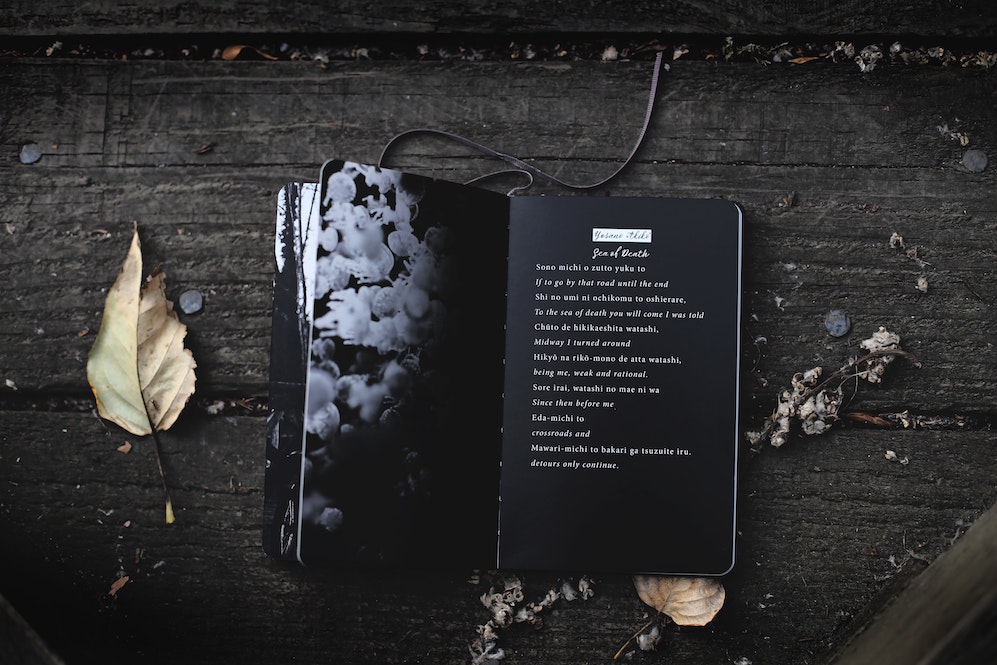
“Dear Reader, beware. You think you’re reading my poems, but in truth, they are reading you. My words are mirrors and windows. Your reaction is merely a reflection of your own nature and experiences.”
— John Mark Green
Introspective writing, such as journaling, has an incredible potential for healing as it allows you to distance yourself from traumatic events. Poetry goes a little further because it requires finding the exact word to express that event. That delving into sadness, loss, apathy… is what creates a conversation in which we can find meaning, relief and healing in this search for words.
In a multicultural world, where many of us express ourselves in languages other than our mother tongue, multilingual poetry gifts us with the opportunity to bring all our voices into the healing process making us whole and healing the entirety of who we are.
The Healing Power of Multilingual Poetry
Poetry, so natural, yet so distant. Poetry is so human as breathing, it comes naturally out of every individual in the comparisons we make, in the images we conjure up in our minds, in the repetitions we utter when we speak, in the rhythms we seek. Poetry is like mindlessly humming to ourselves, or doodling while we listen on the phone. And yet, we have relegated poetry to professional poets and boring lectures about dead writers with whom one can’t relate in the slightest. We have tricked ourselves into believing that poetry is boring, obscure and devoid of any real human experience when the opposite is true.
We barely read poetry. We don’t write it. And I wonder why? What are we missing? What are we scared of?
I love words and words, for me, influence the way I see the world, the way I express my world and the way I connect with other humans. All this is essential stuff, right? But the power of words doesn’t stop here, words create me and, more importantly, help me heal. Words in my mother tongue carry wounds and words in the so-called “foreign” languages, help me see that wound and tend to it.
I’ve always enjoyed exploring the use of words because I was mesmerized by their power, from self-talk and our sometimes unconscious inner-narrative, and the impact that has on the way we act in life, to the way we use our words in public to other people and how word can become both a wall and a connecting thread. Also, later in life, I realised how writing is in itself something very close to therapy. I read or heard somewhere, some said “I don’t know what I think until I write it and then I read it”. That’s the same for me.
Journaling and poetry are both healing or have the potential to heal. But poetry has this extra layer of meaning that we attach when we create something with an artistic or ceremonial purpose. It is about searching the essential word or line that also seeks connection. Why? First of all, because poems are to be read out loud, so when you hear yourself reading your own poetry or someone else’s, it loops back and you connect with the author, whether that’s you or someone else. Poetry is like medicine, like a mantra or pills you take to feel better.
Poets by Nature
However, in many countries, I see many people scared of poetry because they’ve had bad experiences in school, or they believe is difficult or inaccessible or not relevant to them. But the reality is that poetry has been with us, accompanying us throughout the years. What I mean is that, since humans created language and our ability to communicate in this manner, poetry has been a form of communication, self-expression and transmission. So there is something very natural in the use of poetry.
Many people have an intuitive sense that voice in general and poetry, in particular, can be healing. We have all had the experience of the comfort of soothing words. Finding the words to articulate a traumatic experience can bring relief. A letter between friends who are fighting can heal a relational wound. Poetry can spring from us naturally in times of need. People are frequently moved to write a poem in times of extremity. Or even, we heal by reading a poem that we can relate to. This is something I think everybody has experienced at least once in their life.
The healing effect of words has long been recognized. And I could talk about the use of words as a healing tool that appeared all throughout history dating as far back as 4000 BCE, when Egyptians wrote words on papyrus, dissolve them in liquid, and gave them to those who were ill as a form of medicine.
But how does poetry as therapy or as a healing mechanism actually work?
We can explore feelings and memories buried in the subconscious and identify how they may relate to current life circumstances.
Poetry is believed to be beneficial to this process as it can often:
- Be used as a vehicle for the expression of emotions that might otherwise be difficult to express
- Promote self-reflection and exploration, increasing self-awareness and helping individuals make sense of their world
- Help individuals redefine their situation by opening up new ways of perceiving reality
- Validate emotional experiences and improve group cohesiveness by helping people realize many of their experiences are shared by others
- And finally, on a more professional level, help therapists gain deeper insight into those they are treating
There are three main ways in which one can use poetry as a healing tool which follow the model introduced by Nicholas Mazza, one of the founders of modern Poetry Therapy. The three main ways to use poetry as a healing tool are: receptive/prescriptive, expressive/creative, and symbolic/ceremonial. For this article, I am going to focus on the second one, which is expensive or creative, that is, creating your own poems in multiple languages.
The process of writing can be both cathartic and empowering, often freeing blocked emotions or buried memories and giving voice to one’s concerns and strengths.
In mainstream culture, there are subjects we do not talk about. They are taboo. For example, even though each of us is going to die, we don’t talk about dying. Instead, we avoid it. Also, there is a lot of resistance against self-exploration as if we were scared of what we may find out and not able to deal with it. I think that in Western societies, we are often encouraged to ignore our feelings and to move on quickly from traumatic or painful experiences, we are not encouraged or even allowed to sit with our pain and really feel it, with the result that those feelings get pushed away like dirt under a carpet or tucked away in a box in the attic, like something that we do not clean because we fear it will be too much of hard work but as much as we want to ignore it, we know is still there, so we spend energy in avoiding “cleaning it” or “dealing with it”.
Poetry allows us to deal with it in the process of remembering the event, relating the event, and the emotion that we tucked away. So we relieve, as in live again that emotion and with it, we relieve its pressure and release the hold that event had on us.
There is proof that through poetry as therapy, many people are able to integrate difficult feelings, reframe traumatic events, and develop a more positive outlook for the future.
How does multilingual poetry add this healing power?
The first thing is that writing in a non-native language creates a distance from the event, which in a way, softens the act of relating to it or reliving it.
Also, every language has a different mindset, world view or way of solving problems. This different mindset permeates, consciously or not, through our expression. I believe that we become a different person in every language we speak, we adopt a different frame of mind with every language we speak or in this case, write in.
So when we explore a difficult event through the lenses of a mind-frame we didn’t have at that time when we experienced that event, we are allowing a different solution to come through.
A Note on Healing
In Chinese, the written character for a poem (shī 诗) is composed of two characters, one means “word” and the other means “temple”. Together they mean “poem”. The wisdom of poetry is in the combination of the sacred and the word as illustrated by the character in Chinese.
We are Meaning Makers
Poetry is nothing more than meaning-making or making sense of something and from there, making it important, making it meaningful so that we can learn from it and let it go.
On a personal note, poetry has healed me time and again. It healed me when I read or listened to some poems that made me feel not alone or that made me cry so hard that served as a cathartic moment. They keep healing me with every poem I write that allows me to either see the event or emotion in a different light or again, work as a release. They heal me when using them in a symbolic or ceremonial way, for example, when I write a poem and then burn it, or when I read a poem I relate to almost as one would read a prayer.
Practical Poetic Pill
I want to leave you with a poem that has healed me in recent years when I suffered from stress and burnout.
This poem, by W H Davies, is called Leisure
What is this life if, full of care,
We have no time to stand and stare.
No time to stand beneath the boughs
And stare as long as sheep or cows.
No time to see, when woods we pass,
Where squirrels hide their nuts in grass.
No time to see, in broad daylight,
Streams full of stars, like skies at night.
No time to turn at Beauty’s glance,
And watch her feet, how they can dance.
No time to wait till her mouth can
Enrich that smile her eyes began.
A poor life this if, full of care,
We have no time to stand and stare.
Read it out loud, how does your body react? What emotions arise? I know I cried the first time I read it at one of those right times. It spoke directly to me, to that part of me who knew I was spreading myself too thin and wanted to stop to smell the flowers. That unconscious part was dragged out of the shadows by universal images I related to.
Read poetry, my love,
for poetry whispers universal wisdom in your ear
and you’ll hear what you need to hear.
Write poetry, my dear,
for the words you spill out unravel you,
those words render the treasure map of you
so you can find yourself,
the hidden gold.


